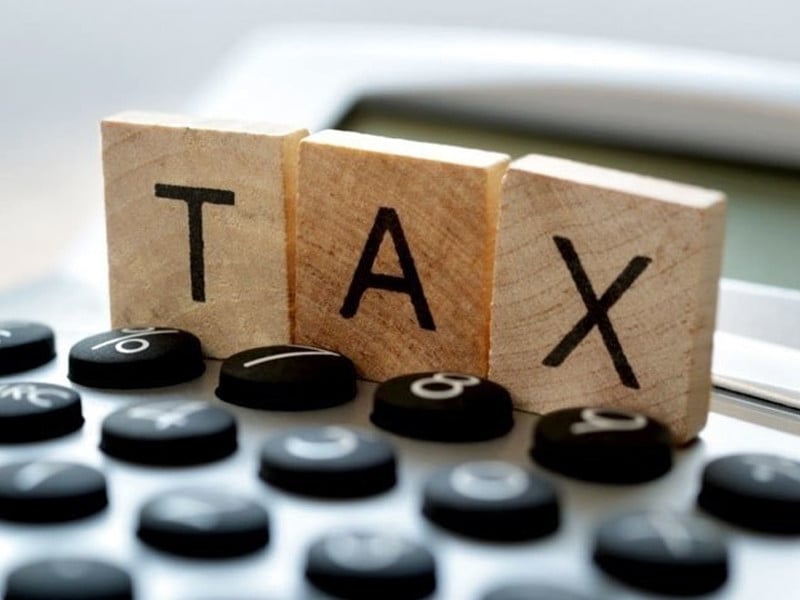
Pakistan is a country with its unique dynamics. The undocumented economy is very large and tax filers are only 5.3 million.
People in their very nature are largely oriented towards doing charity but at the same time, they display noticeable inertia at the question of entering the official tax net.
In this societal makeup, only the salaried class and documented corporate sector contribute to the direct taxation pie. In this background, the petroleum development levy (PDL) seems the most equitable of all taxes. Let's investigate why?
While delving into the very basic economic literature, we come to realise that tax is primarily classified into two categories: direct tax and indirect tax.
Furthermore, textbooks suggest that direct taxation, eg income tax, is more equitable and should be preferred. While indirect taxes like the general sales tax (GST) and PDL are regressive in nature as a billionaire pays the same amount of GST on a packet of biscuits as a popper on the street. While this textbook distinction is as valid as other economic concepts in an ideal world, practicalities of the real world call for innovative solutions.
A country like Pakistan, where traders and agriculturalists largely stay away from the formal tax net along with real estate barons, we must come up with different strategies, albeit temporarily, in order to take a fair amount of tax from these untaxed segments and PDL seems to be a reasonable measure.
Everybody uses fuel. People who don't pay taxes have higher disposable incomes; hence they are prone to indulging in luxuries more than the already squeezed formal sector. Since they have untaxed money, they resort to means through which they can showcase their wealth. In Pakistan, over the last two decades, big inefficient trucks and jeeps are a primary means of showing off wealth. An agriculturist buys a new SUV invariably after every harvest.
Similarly, the real estate barons, who have doubled their wealth through the unproductive activity of trading real estate files, are also seen in their monstrous trucks.
The psychological and philosophical idea behind this behaviour is very simple. Easy money is easily spent. Hard-earned money is carefully spent and largely invested.
So, the people who make easy money due to tax evasion are naturally prone to show off their wealth through the inefficient big trucks. So, the important question here is what to do about this?
The concept of nudge theory in behavioral economics works much better than the traditional rhetoric of imposing circumventable regulations. We need to make these luxuries expensive through taxation and PDL can be one way to make this possible.
Naturally, a jeep or truck owner would pay more PDL than a common man on a motorbike. Hence, through this mechanism we will collect a sizeable tax from the undocumented economy. Not only this; but the very nature of fossil fuel compels us to make it more expensive as it produces the negative externality of air pollution.
However, the demand for fuel is largely inelastic. Making it more expensive would not reduce consumption much but we can use the tax collected for environment-friendly measures to absorb this negative externality.
Or, we can use these funds for developing a robust public transport network that will eventually reduce emissions.
Last year, we collected around Rs1 trillion from PDL and this year's target is Rs1.25 trillion. By increasing PDL by Rs10 per litre, we may collect an additional Rs200 billion.
Now, the question of inflation comes into play. It must be appreciated that expectations for inflation are a larger issue as compared to inflation itself.
Currently, inflation expectations are anchored downwards due to the recent slide in the Consumer Price Index (CPI). Furthermore, petroleum prices have already gone down due to falling international oil prices.
The outlook for oil is dovish with the change in political headwinds in the US, overall recessionary mood and somber numbers from China. It is estimated that Brent could go as low as $40 a barrel if OPEC removes its self-imposed production cuts.
Furthermore, if the Ukraine and Palestine conflicts inch towards resolution, internal oil prices will exhibit a sharp decline, which will give a window to the government to raise PDL without raising inflationary expectations.
The only real challenge in this situation is that the formal oil companies might lose market share to the illicit and smuggled fuel. It needs to be checked in order to make this strategy successful.
To conclude, we must admit that increasing PDL is not ideal and might be discouraged when the direct taxation situation improves. But in the current situation, keeping in view the untaxed sector, international oil price scenario and Pakistan's inflation trajectory, this seems to be a more equitable mode of taxation than any other available.
The writer is a banker and teaches economics

1732503274-0/Untitled-design-(43)1732503274-0-405x300.webp)
1732501636-0/Untitled-design-(42)1732501636-0-165x106.webp)

1732498967-0/Outer-Banks--(1)1732498967-0-165x106.webp)
1732086766-0/BeFunky-collage-(74)1732086766-0-165x106.webp)
1732486769-0/image-(8)1732486769-0-270x192.webp)











COMMENTS
Comments are moderated and generally will be posted if they are on-topic and not abusive.
For more information, please see our Comments FAQ